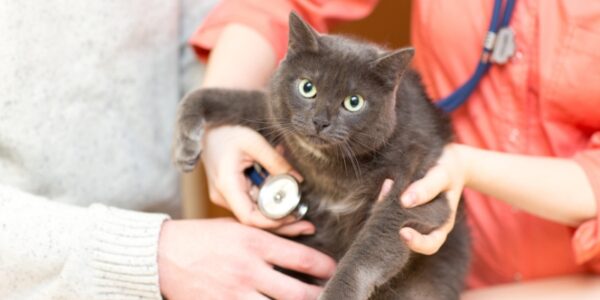At Vets in Cranbourne, we offer comprehensive cat desexing services to promote the health and happiness of your furry family member. Desexing a cat is essential for preventing unwanted litters while providing significant health and behavioural advantages.
Cat Desexing
Male Cat Desexing
- Neutering: This procedure involves the removal of the testicles, which prevents reproduction and diminishes behaviours like territorial spraying and aggression.
Female Cat Desexing
- Spaying: This involves the removal of the ovaries and uterus, preventing pregnancy and eliminating risks of ovarian and uterine diseases.
Why Desex Your Cat?
Desexing is a key step in ensuring your furry feline friend remains healthy and happy while reducing the likelihood of unwanted litters.
Health Benefits
Female Cats
- Prevents pregnancies that can occur as early as four months, even with related males.
- Significantly lowers the chances of developing mammary tumours later in life.
- Removes the chance of developing Pyometra (a life-threatening infection of the uterus).
Male Cats
- Reduces unpleasant urine odour and strong male scent and lowers the risk of testicular and prostate diseases.
- Neutered males enjoy softer coats and are less likely to develop thick, rough skin.
- Outdoor, intact cats—particularly males—are at greater risk of contracting FIV (Feline Immunodeficiency Virus), with preventative vaccines not offering complete protection.
Behavioural Improvements
- Male cats often become calmer and are less likely to spray indoors.
- Desexing reduces territorial aggression and roaming behaviours in both sexes.
- Female cats in heat can be extremely vocal, often causing disturbances at night.
Desexed cats typically lead longer, healthier lives. Many councils in Victoria also provide reduced registration fees for desexed pets, reducing the cost and making pet ownership in Melbourne more affordable.
Cat Desexing at Vets in Cranbourne
Preparation for Surgery
- Your cat should fast from midnight prior to the procedure.
- Admission is scheduled for the morning, with discharge by the afternoon.
Procedure and Recovery
- The procedure is performed under general anaesthetic.
- Female cat desexing recovery time generally requires 10 days of calm and quiet confinement.
- Male cats should be kept confined for 24 hours post-surgery.
- An Elizabethan collar will be provided to prevent licking.
- Energetic kittens may need recovery in a large pet crate.
Contact Vets in Cranbourne to schedule your furry family member’s cat desexing appointment today and support a healthier, happier life.
FAQs
Yes, cat desexing is beneficial for reducing unwanted behaviours, preventing potential health issues, and avoiding contributing to the overpopulation of kittens. Many local councils offer reduced registration fees for desexed cats.
The ideal cat desexing age is between 12-16 weeks, before they reach sexual maturity. Pre-pubertal desexing is safe and comes with benefits like shorter surgery times.
Absolutely! It’s never too late to desex your cat. Many unwanted behaviours may reduce or vanish within 2-4 months post-procedure.




